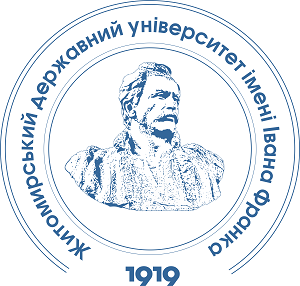PSYCHODYNAMIC AND SOCIOLOGICAL VIEWPOINTS OF IDENTITY FORMATION
DOI:
https://doi.org/10.32782/psy-2025-5-13Keywords:
identity, self-identity, self, psychodynamic viewpoint, sociological viewpointAbstract
The problem of identity, one of the most important issues, is discussed in two major forms – psychodynamic and sociological. These viewpoints offer contrasting but complementary insights into how identities are formed, maintained, and transformed. The psychodynamic perspective on identity is associated with psychoanalytic theory developed by Sigmund Freud and later expanded upon by Erik Erikson. In this viewpoint early relationships, particularly with primary caregivers, are seen as foundational in the formation of one’s identity. In psychodynamic view identity is often understood as the outcome of unconscious forces, early experiences, and socialization processes that shape the individual’s internal sense of self. The psychodynamic viewpoint tends to focus more on the individual’s inner world – the ways unconscious thoughts and emotions shape their behaviour and self-understanding. In contrast, the sociological perspective on identity places more emphasis on the external forces – social, cultural, and structural factors – that influence the development of identity. This viewpoint is rooted in the work of William James, George Herbert Mead and Charles Horton Cooley. The sociological view of identity is dynamic, relational, and rooted in social context. It argues that identity is shaped by interactions with others and influenced by larger social structures. Cultural norms, social roles, and group membership play significant roles in how individuals perceive themselves and are perceived by others. Both viewpoints are crucial in understanding the complexity of identity formation. While the psychodynamic perspective gives insight into personal development and internal conflicts, the sociological perspective highlights the social and relational nature of identity. Together, they provide a more comprehensive understanding of how we become who we are.
References
Cooley Ch. H. Human Nature and the Social Order. London : Forgotten Books, 2018. 474 p.
Cooley Ch. H. Life and the Student / Intro. by J. B. Imber. London : Routledge, 2015. 164 p.
Erikson E. H. Identity, youth and crisis. New York : W. W. Norton Company. 1968. 336 p.
Freud S. The Ego and the Id / Ed.: T. A. Geus. New York : Dover Publications, Inc., 2018. 64 p.
Hamachek D. E. Evaluating Self-Concept and Ego Status in Erikson’s Last Three Psychosocial Stages. Journal of Counseling and Development. 1990. Vol. 68. P. 677–683.
James W. The Principles of Psychology / Intro: G. A. Miller. Harvard : Harvard University Press, 1983. 1328 p.
Leary D. E. William James on the Self and Personality: Clearing the Ground for Subsequent Theorists, Researchers, and Practitioners. In Reflections on the Principles of Psychology: William James after a Century. Eds. W. James, M. G. Johnson, & T. B. Henley. Hillsdale, New York : L. Erlbaum Associates. 1990. P. 101–137.
Lévi-Strauss C. Structural Anthropology / trans. C. Jacobson & B. Grundfest Schoepf. New York : Basic Books; Revised ed. 1974. 410 p.
Masi F de. The Ego and the Id: Concepts and developments. The International Journal of Psychoanalysis. 2023. Vol. 104(6). P. 1091–1100. DOI: 10.1080/00207578.2023.2277024.
Mead G. H. Mind, Self and Society / Ed.: Ch. W. Morris; annotated edition by D. R. Huebner & H. Joas. Chicago : University of Chicago Press. 2015. 562 p.






